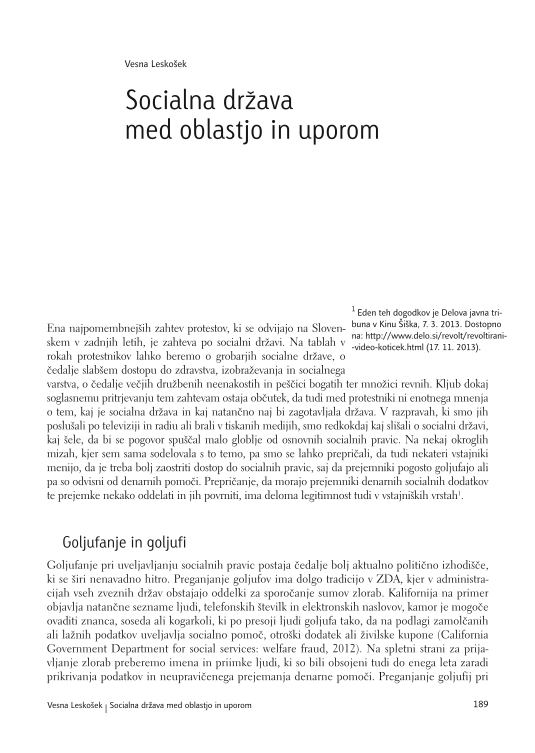The article identifies a viewpoint of changes that are not often in the foreground when the welfare state and social rights are addressed. It is about contemptuous and hate discourse that brings people who assert the right to welfare into disrepute, and it aims to achieve broad consensus within society by minimizing the role of state at ensuring these rights. With the intention of moral disrepute of the poor, the environment is created in which hindering the access to social rights is seen as morally legitimate, while this moral estimation is based on the belief that those people are swindlers, idlers or non-motivated and passive unemployed individuals who exploit the social benefits. Every practice is therefore allowed even if it violates human rights. Effects of this discourse are multilayered/multifaceted; the most important is changing the understanding of the welfare state. The changes seem to be legitimate, if not righteous.




